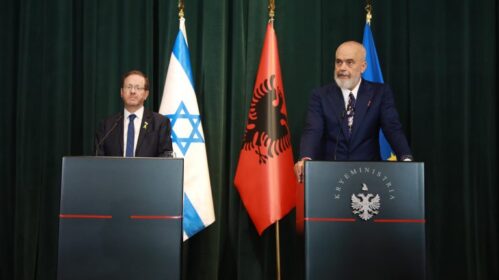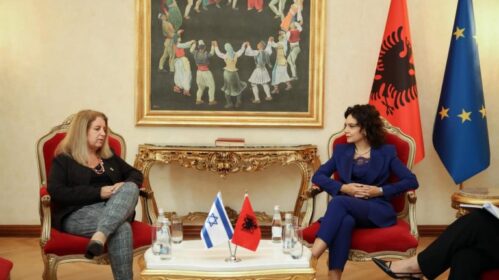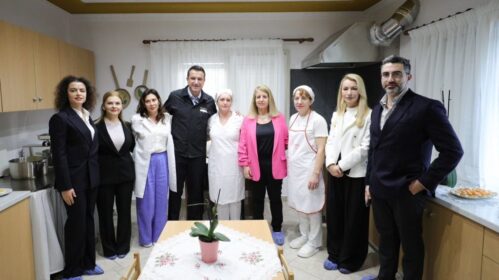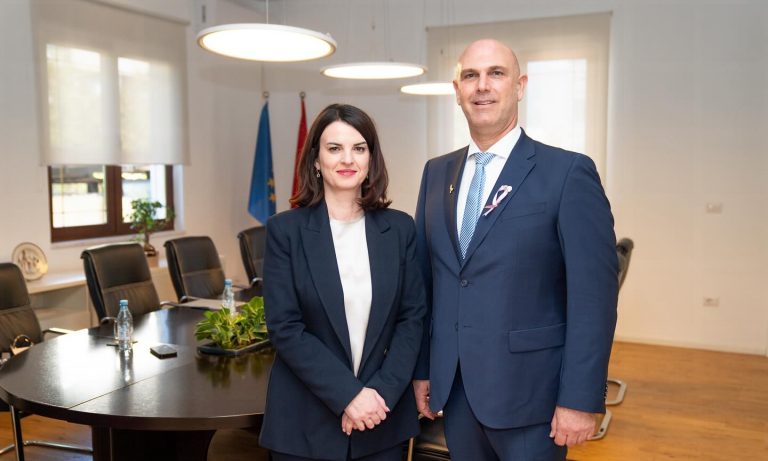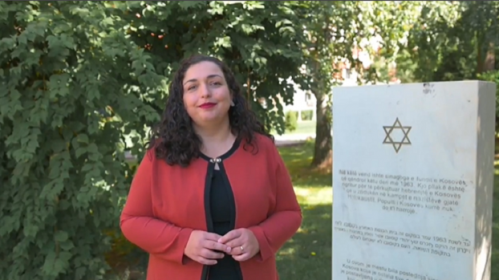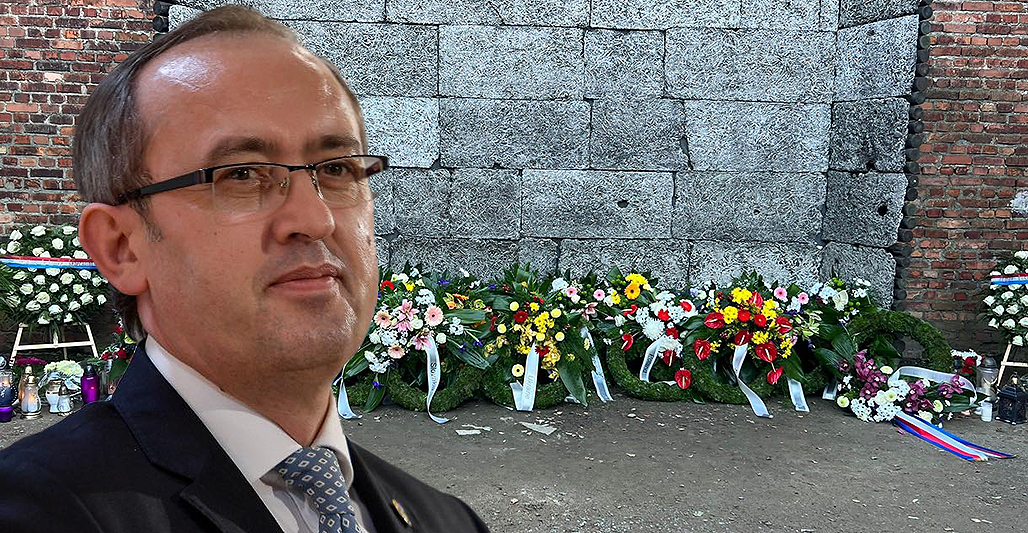How many times have you gone to synagogue on Friday night for Kabbalat Shabbat, and been greeted by a president of a foreign country? It happened to me once, last Friday in New York. It was a surprising, moving event, but also one that brought me some shame.
Follow Ynetnews on Facebook and Twitter
I’m talking about Albanian President Bujar Nishani, a relatively young man of 48, who was there at the Kabbalat Shabbat at the B’nai Jeshurun synagogue, and even addressed the audience.
No, he is not Jewish. As with most of Albania’s citizens, Nishani comes from a secular Muslim family. But he was invited to this lively synagogue, referred to by the locals as “BJ”, so that the community members could offer him their respect.
Respect — for the fact that during the Holocaust, none of the thousands of Jews in that small country were sent to a concentration camp. Yes, that’s right, not even one. In 1939, Albania was under Italian rule, and when the Nazis conquered all the surrounding Balkan countries, many Jews received a visa from the Albanian authorities and were able to escape there.
A Tel Aviv protest against the deportation of asylum seekers. The poster reads: ‘Israel is expelling refugees to their deaths’ (Photo: Eli Segal)
A Tel Aviv protest against the deportation of asylum seekers. The poster reads: ‘Israel is expelling refugees to their deaths’ (Photo: Eli Segal)
When the Nazis invaded Albania in 1943, the Albanian authorities issued false documents to all the Jews residing within its borders (including the small Jewish community living there for generations) and kept their mouth shut. None were discovered. The whole country was declared Righteous Among the Nations in 1995.
Word of honor
Why did they do it? Because in that most Muslim country, there is an honor code called “besa”. It means “a word of honor”, and under it one is obliged to shelter those who are persecuted, irrespective of religion or ethnicity.
In his short speech, which included a smattering of Hebrew expressions, Nishani explained that for the locals, it was incomprehensible to hand over anyone who had entrusted them with his or her life.
Local reports in African country say Rwandan President Kagame confirmed a deal with Israel to host its African immigrants.
To this day, the president claimed, the besa code of honor forms the basis for the laws of morality and ethics of his country. “It’s like among you”, he said, “whoever saves a single soul, it is considered as if he saved the entire world”.
That was the moment in which I felt shame and embarrassment. The president wanted to flatter his audience, but, I, as an Israeli, only thought about the horrible way in which we treat refugees. Yes, we honor those who saved us – the State of Israel defines them as “hasidei umot ha-olam” (Righteous Among the Nations) — and Yad Vashem Holocaust Museum bestows upon them a medal on which this phrase is engraved. We honor them every Holocaust Remembrance Day. But where are we?
The Torah tells the people of Israel no less than 36 times to accept strangers who dwell among them with open arms and treat them with compassion, “because you were strangers in the land of Egypt.”
Just for comparison, keeping the Shabbat and adhering to the laws of kashrut are mentioned far less. So how do we justify our abuse of those unfortunate people who have somehow managed to reach Israel and survive?
Something happened to this principle, that appears in the Mishna as “whoever saves a single soul”. In later edition of the printed Talmud it becomes “whoever saves a single soul of the Israelites”. As if saving a Jewish soul is a mitzvah, while the soul of an Eritrean refugee is a not worth saving, and he or she can be sent to the Holot detention facility in the Negev desert while they await deportation.
One refugee is equal to the world entire
We put on a pedestal those who had the courage and compassion to save us, “the People of the Book”, who have given the world such wonderful moral laws. But returning the favor by emulating them and relating in a like-manner to others? That’s too much to ask.
The B’nai Jeshurun synagogue, which was established in New York almost 200 years ago, has a long history of bringing in guests from various circles and cultures to speak to the community. Israel’s first president, Dr. Chaim Weizmann, lectured there, as did Eleanor Roosevelt, Rabbi Abraham Joshua Heschel, and Dr. Martin Luther King.
To the Kabbalat Shabbat at which the president of Albania spoke, a Muslim imam and Orthodox priest were also invited, in honor of the main religions of Albania. Students on a Holocaust studies course at the University of Queens were also present.
And just to demonstrate what it means that one life is equal to the world entire, the president was surprised by one of the community members who rose to thank him. His mother, the audience member said, had been 14 when the Nazis annexed Austria, her birthplace.
“If it was not for your country’s hospitality I would not have been here today,” he said.
Would it not be wonderful if the children and grandchildren of Eritrean refugees could say the same about their forebears in a generation or two?
Igal Harmelin Moria is a journalist and translator based in New York.
https://www.ynetnews.com/articles/0,7340,L-4660365,00.html








